- Home
- Bronwyn Scott
Claiming His Defiant Miss Page 2
Claiming His Defiant Miss Read online
Page 2
Liam stepped aside, letting her look as he held the needle in the flame. ‘I don’t think anything vital was hit, but he’s lost a lot of blood.’ He nodded his head towards the whisky bottle. ‘Give him some to drink now, he’ll need it once this needle goes in him.’ With luck, Preston would pass out after the first couple of stitches. But first, he had to bathe the wound. He wanted a clean working surface. The fresh hot water was ready now and he dipped a cloth in it. Washing away the blood made it look better, better being a relative term. The bleeding had stopped, he could see that now, and he could put aside his worry that the knife had punctured a lung. But the gash was long and it was ugly, made by a jagged blade. Preston wasn’t going to get out of this without a scar.
The farmer took up a position at Preston’s head with one of his sons. ‘You’ll probably need two of us. Your friend looks like quite the fighter.’ The woman and the other son each grabbed a leg. Liam drew a deep breath, prayed for steady hands, crossed himself and began to sew.
* * *
It was over in a matter of minutes although it felt like hours. Liam was exhausted. He looked at his handiwork. Would it be enough? Had his precautions been enough to ward off inflammation? He’d been in enough battles to know it wasn’t the wound that killed a soldier. More often than not, it was the swelling that followed, or the poor medical work, lace-curtained training or not. He couldn’t bring himself to think of being the agent of Preston’s demise instead of his salvation. If it hadn’t been for Preston, he would still be scrambling for work and living hand to mouth in the streets.
The farmer slipped an arm about his shoulders, drawing him back from the table. ‘My boys will watch him while the wife cleans up. Let’s go and have something to drink. You’ve had a hell of a night.’
And it wasn’t even over. The farmer pressed a glass of whisky into his hand. ‘We’ll make up a pallet for you in front of the fire. You can be near your friend.’
‘No, I have to push on.’ Liam swallowed the whisky, letting the gulp burn down his throat and warm his belly. The illusion of warmth gave him the strength he needed to resist the offer. He wanted nothing more than to sleep and stay near, but he had promised Preston. He had miles to go before he could rest. The more distance between him and Cabot Roan, the better. ‘You’ve already done so much, but I have one more favour to ask.’
‘Consider it done,’ the farmer interrupted. ‘We’ll watch over your friend as best we can and hope no fever sets in.’ Preston was stitched, but that wasn’t a miracle cure-all.
‘I can pay you. He’ll need food, meat to build back the blood he’s lost.’ Liam reached in his pocket for a bag of coins and pressed it into the farmer’s hand.
‘It’s not necessary.’ The farmer tried to give back the bag.
‘It is, I assure you. You have done a greater good tonight than you realise.’ Liam furrowed his brow. ‘You’ve done so much and I don’t know your name.’
‘It’s Taylor. Tom Taylor. And yours?’
Liam grinned. ‘My friends call me Case.’ The farmer nodded sagely, understanding the protection Liam had offered him. Sometimes names could be dangerous. Better that this good family not know too much. Liam did not want them harmed in return for their generosity.
The farmer jerked his head towards the inside. ‘Do you think anyone will come looking for him?’ He’d want to know, would want to protect his family.
‘Maybe.’ Liam wouldn’t lie to them. He hoped not. Preston would need a couple of weeks to recover, a month even to be back to full strength. He glanced inside at Preston’s prone figure. He didn’t want to leave, but he couldn’t wait. Edinburgh was a long way from where he was. He’d need a head start if he was going to reach May in time, assuming Cabot Roan even knew to look there. Liam hoped he didn’t. He wanted to gamble that May’s remote and unexpected location would protect her. Then he could stay until Preston was in the clear.
The farmer looked to the sky. ‘There will be rain tonight. A lot of it. Are you sure you want to go?’
He wasn’t sure at all. He didn’t want to go, but he’d given Preston his word. He had to go to May whether she needed protection or not, never mind she’d be about as pleased to see him as he was pleased to be there.
Liam didn’t bother to go back inside. His resolve was weak enough. The offer of a fire and a hot meal would do him in. He shook the farmer’s hand, thanked him once more and mounted up with a wary eye skyward. Maybe the rain would hold off, he was due some luck. Two miles down the road the clouds broke in a soaking deluge. Whoever said the Irish were lucky definitely hadn’t met Liam Casek.
Chapter Two
Village on the Firth of Forth, Scotland—November 1821
‘A penny and nothing more,’ May Worth argued, facing down Farmer Sinclair and his carrots in the market. Farmer Sinclair didn’t want to sell her carrots any more than she wanted to buy them from him, not at that price. ‘Three pennies for a bundle of carrots is highway robbery.’
‘A man’s got to feed his family.’ Sinclair rubbed his stubbly chin with a weathered hand. He gave her a steady look. ‘What do you care if they’re one penny or three, you can afford it either way.’
‘Being of means, as modest as they are,’ May emphasised, ‘doesn’t mean I squander them unnecessarily.’ In the four months she and Bea had been in residence, they’d tried to live frugally in an attempt to call the least amount of attention to themselves as possible. Still, despite their best efforts, there were some like Farmer Sinclair who’d concluded they were ladies of independent means.
Sinclair grumbled, ‘Two and a half. These are fine carrots, the best in the village, and the last fresh you’re likely to get until spring.’ It was hard to argue with that. Sinclair’s produce was always reliable. The carrots were likely worth two and a half this late into autumn, but May didn’t like losing. At anything. Now that she’d engaged in battle she couldn’t back down.
‘Two.’ Sinclair would lord it over her if she gave in too easily and so would Bea when she told her. Bea would laugh and that was worth something. These last few weeks had been hard on Bea. She was in the last month of her pregnancy, large and constantly uncomfortable. She was unable to walk as far as the market these days without her feet swelling. ‘Two. For Beatrice and the baby,’ May added for pathos.
That did the trick. ‘Two,’ Sinclair agreed. ‘Tell Mistress Fields I send my regards.’ He handed her the orange bunch and she tucked them victoriously into her market basket. But it was only a partial win and Sinclair knew it as well as she did. Bea would have got a better price without haggling. Everyone in the village liked Beatrice. It wasn’t that they didn’t like her, it was possible to like more than one person at a time. Liking wasn’t exclusive, but they were definitely wary of her.
The carrots were the last of the items on her list. It was time to head home. She didn’t like being away from Beatrice for too long with the baby due soon and she had letters to read—one in particular from her brother that she was eager to read. She knew Bea would be eager for it, too. News from home was sparse these days. The other was from her parents, which she was less eager to read. That one, she would read in private later. Besides, without Bea at the market, her own socialising opportunities were more ‘limited’.
May understood quite plainly she was tolerated because of Bea and she understood why. She was too blunt for some of the ladies and too pretty for some of the wives who worried she’d steal their men. If only they understood she wasn’t interested in men. She’d come here to escape them. So far, that part was working out splendidly. The men hadn’t any more idea what to do with her forthright behaviour than the women did. No one knew what to make of her, no one ever had, except Beatrice and Claire and Evie.
Her friends had never tried to make her fit a mould. They’d simply accepted her as she was, something her own parents had not succeeded in d
oing. Instead, they’d threatened to marry her off to the local vicar back home if she didn’t find a husband by next spring. She didn’t really think they’d do it, they were just trying so hard to make sure she was betrothed before spring. She highly suspected the second letter in her basket was a long-distance attempt to reintroduce the theme as they had done this past summer.
They’d made countless attempts, some subtle, some less so, during the Season to throw eligible men her direction. She’d thrown them all back and her parents were definitely frustrated. One more Season had passed and she still hadn’t become the dutiful daughter. Here she was, nearly twenty-two, with three Seasons behind her and no suitor in sight, all because of one man.
She’d loved deeply once, although she’d been warned against it. She was too young, he was too ‘dangerous’ in the way unsuitable men are for well-bred girls who are restless and fresh out of the schoolroom. But she had done it anyway and now she was paying. She couldn’t have him. Their harsh parting had seen to that. There could be no going back from the words and betrayal they’d flung at one other. But that didn’t stop her from measuring all others against him and no one could possibly measure up. Her father called it disobedient, outright rebellious. Her mother called it a shame.
Perhaps they were right. Maybe she was rebellious. Maybe she was a shame to the family. There was certainly argument for that. For all outward appearances, she had everything a successful debutante could want: she was pretty, her family was respectable, her father the second son of a viscount, a valued member of Parliament, and she had a dowry that more than adequately reflected all that respectability. What was not to like? She should have been an open-and-shut case, a prime piece of merchandise snatched off the marriage mart after two Seasons.
Although, to her benefit, all that parental frustration had probably been the reason her parents had let her accompany Beatrice into Scottish exile while she waited out her pregnancy: the errant daughter would be out of sight, out of mind. Perhaps her parents hoped a few months in Scotland would change her mind, show her what life was like alone and isolated from society. A spinster could expect nothing more.
May smiled to herself and gave a little skip along the dirt road. If that’s what her parents hoped for, they couldn’t be more wrong. She loved it here. Never mind the villagers didn’t know what to make of her. That could change in time. Even if it didn’t, she liked being on her own, just her and Beatrice. She liked doing for herself. She’d discovered she had a talent for cooking, for shopping for their small household, for growing things. She and Bea had the most spectacular greenhouse where they would be able to grow vegetables year-round—not enough to live on, not yet. They would still be reliant on the Farmer Sinclairs of the world for a while. But come spring... That put a stop to her skipping.
Would they still be here in the spring? She hoped so, but Beatrice’s parents might call her home after the baby was born. Her own parents certainly would want her back at some point. This had become an anxiety point for both of them over the last few weeks. The baby coming changed everything and ‘everything’ was uncertain. Beatrice feared someone would come and take the baby away. She was unwed after all, never mind that the village called her Mistress Fields and thought Mr Fields was a small merchant explorer away at sea, a fiction they had liberally borrowed and enhanced from one of Bea’s favourite romance novels. The truth was, Beatrice had been indiscreet last winter and now she was paying for it. When this was over, Beatrice didn’t want to go home any more than May did.
‘We simply won’t go.’ May had told her just last night when Bea had been up worrying again. ‘They can’t make us.’ That was only partly true. Their parents could make them. Their parents could cut off the allowance that let them keep the spacious cottage and buy food. Maybe Preston would stand up for them. Preston always did. He was the best of brothers. He was what May missed most about being away from home.
But she couldn’t rely on Preston for this. This was her decision alone to make, hers and Bea’s. They had to rely on themselves. They were already saving part of their allowances in case they were cut off. They had the greenhouse. They’d have their garden in the spring, they could make preserves, maybe enough to sell in the market or to trade. They had the clothes they’d come with and the horses too, although horses needed hay. If they economised, they could be countrywomen in truth. It was a daring plan to be sure and not without some risk. They would be giving up life as they knew it, but they would have their freedom in exchange.
Nothing changed until you did. That was the motto of the Left Behind Girls Club, of which there remained only two members now, her and Bea. Claire and Evie had both married. She’d gone to Evie’s wedding in October. Evie had been a radiant autumn bride, proud to stand beside her handsome husband, a royal prince of Kuban who’d given up his title for her and become a country gentleman in Sussex. If Dimitri Petrovich could do it, perhaps she and Bea could do it, too. They had to be the agents of their own change. They had to stand up for what they wanted, even if they had to fight for it.
The heavy weight in May’s skirt pocket reminded her of how literal that fight might be. Promise me you won’t let anyone take the baby, Beatrice had pleaded tearfully with her. If anyone came, they wouldn’t stop at an argument, something May could win. They would resort to physical force. It was a sad truth that men could simply overpower women to take what they wanted when reason failed, but guns were great equalisers; Preston had taught her that. She had one now in her skirt pocket, just in case. She’d promised Bea no one would take the baby as long as she had one good shot. A Worth’s word was golden.
The hairs on the back of her neck prickled as she approached their cottage. Usually the sight of their neat brick home with its steep slate roof brought her a sense of comfort. Today, she felt unease. Perhaps all this thinking about someone taking the baby had put her imagination on edge. The baby wasn’t even born yet. May tried to talk herself out of the premonition. Her mind was playing games. But it was no use. Something was wrong. There was mud tracked up the porch steps to the door, the way boots tracked mud. Boots meant men. Men meant trouble. It was market day, no one would make a special trip out. If there was business to be dealt with, she would have taken care of it in town.
May set down her basket and scanned the yard, her eye catching the anomaly. There! A horse, not one of their own; an animal too sleek to be a farmer’s. This was the kind of horse owned by someone who rode. Horses meant money and this one looked vaguely familiar. Her mouth went dry. Had Bea’s family come already? May slipped her hand into her pocket and slowly pulled out the pistol, letting calm slide over her. Just think about the next step. It was a trick Preston had taught her, something he’d learned from his work for the government.
Through the window, she could see the top of a man’s head. Someone was sitting in the front parlour’s spare chair. Good. Whoever it was couldn’t see her. Take them by surprise. Don’t give them a chance to think. The only one thinking should be you. Preston had taught her that, too. She’d know where to turn once she came through the door; she’d know where to aim her gun. She wouldn’t waste a moment learning the layout of the room and who was where.
May drew a breath and threw open the front door with her shoulder, using more force than necessary. It banged against the wall, making noise and startling the room’s occupants. She whirled towards the chair at the window, the pistol trained on the man. The light from the window might obscure the details of his face, but she could see enough to hit him. She would aim for his shoulder. ‘Get out, we don’t want you here.’ She let the ominous cock of the pistol fill the stunned silence of the room, a silence that didn’t last nearly as long as it should have.
Most people took guns seriously. Not the man in the chair. He laughed! The sound of it sent a shudder of recognition down her spine as he drawled, ‘Hello, Maylark. It’s nice to see you, too.’ With those words, the element of surpr
ise was neatly turned on her.
May froze. Liam Casek was here? She blinked against the light from the window, against the improbability, trying to digest the reality. Liam Casek—her brother’s work partner, her one great moment of foolishness, the man against whom she measured all other men and found them lacking—was sitting in her front parlour in the middle-of-nowhere Scotland, the last person she’d ever have expected to see. In truth, he was the last person she wanted to see here. He could only bring her trouble as he’d so aptly demonstrated on earlier occasions. How would she ever explain him to Beatrice? She lowered the gun, her arm suddenly heavy from the weight, and his eyes flickered towards the motion.
‘How like you to greet gentlemen with pistols.’ It was an insult if ever there was one. The last time she’d seen him had been five years ago, a mere seventeen-year-old girl. She was far more grown up now. She should say something witty, one of her famed biting retorts, but all she could do was stare.
He was much as she remembered him: blue Irish eyes that sparkled in the face of danger—she didn’t know many men who would take a pistol aimed at them sitting down—untrimmed hair falling over his shoulders in a tangle of dark waves that rebelled against any attempt at convention, a body that dwarfed anything in a room. Tall and lean, Liam Casek had always known how to take up space, only there was so much more of him now. There were new things about him, too: the tiny curving scar high on his cheek near his left eye, the long, refined cheekbones that gave his face its sharpness. Its shrewd intelligence was new, too—signs of the man that had been carved from the boy she’d once known.
But, oh, his mouth was the same. He had the mouth of a gentleman; thin on top and falsely hinting at aristocracy, full on the bottom suggesting sensuality. That mouth was the merest suggestion of softness set above the square jut of a rugged chin, to remind a woman that any pretence to tenderness was illusion only. That mouth knew how to tease a woman, to lead her on, intimating that other mysteries might lurk beneath the rugged façade should that woman dare to look. She’d been that bold once, that naïve. She’d thought to discover those mysteries once upon a time. Back then, she’d been on the brink of womanhood, and he on the brink of manhood at twenty-one, still not quite full come into the man who now stood before her. They had been reckless, she most of all. He was not for her. They both knew it with a certainty which made it inconceivable that he was sitting before her now.

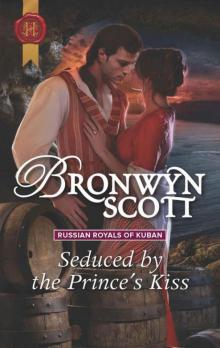 Seduced By The Prince's Kiss (Russian Royals 0f Kuban Book 4)
Seduced By The Prince's Kiss (Russian Royals 0f Kuban Book 4)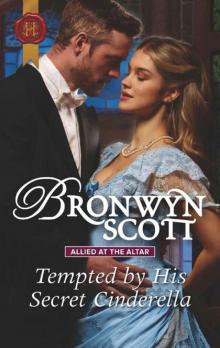 Tempted By His Secret Cinderella (Allied At The Altar Book 3)
Tempted By His Secret Cinderella (Allied At The Altar Book 3)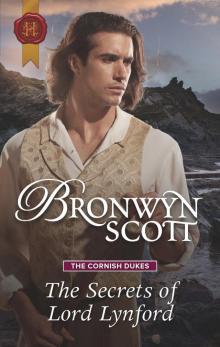 The Secrets of Lord Lynford
The Secrets of Lord Lynford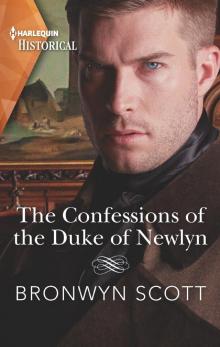 The Confessions of the Duke of Newlyn
The Confessions of the Duke of Newlyn The Passions 0f Lord Trevethow (The Cornish Dukes Book 2)
The Passions 0f Lord Trevethow (The Cornish Dukes Book 2)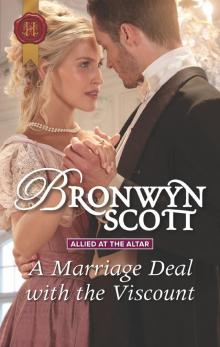 A Marriage Deal with the Viscount--A Victorian Marriage of Convenience Story
A Marriage Deal with the Viscount--A Victorian Marriage of Convenience Story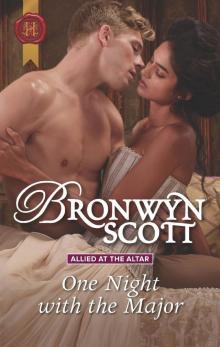 One Night with the Major
One Night with the Major The Passions of Lord Trevethow
The Passions of Lord Trevethow Grayson Prentiss's Seduction
Grayson Prentiss's Seduction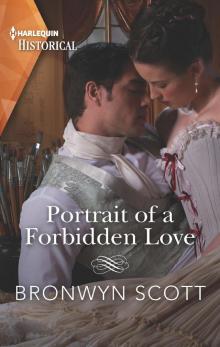 Portrait of a Forbidden Love--A Sexy Regency Romance
Portrait of a Forbidden Love--A Sexy Regency Romance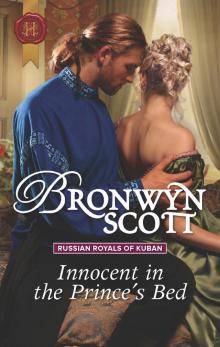 Innocent in the Prince's Bed
Innocent in the Prince's Bed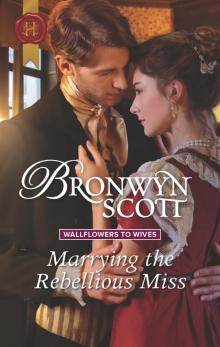 Marrying the Rebellious Miss
Marrying the Rebellious Miss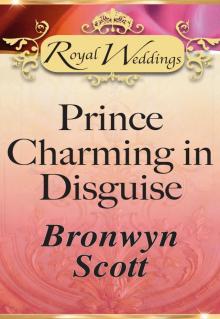 Prince Charming in Disguise
Prince Charming in Disguise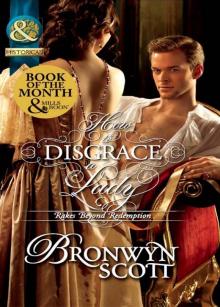 How to Disgrace a Lady
How to Disgrace a Lady Secrets of a Gentleman Escort
Secrets of a Gentleman Escort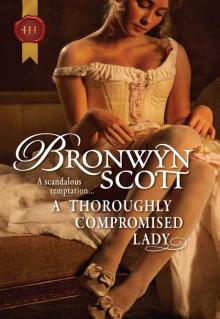 A Thoroughly Compromised Lady
A Thoroughly Compromised Lady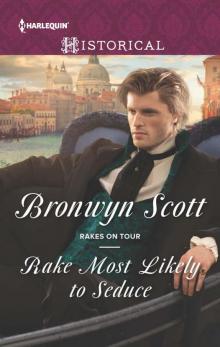 Rake Most Likely to Seduce
Rake Most Likely to Seduce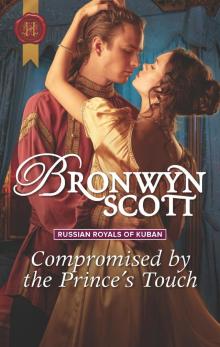 Compromised by the Prince's Touch
Compromised by the Prince's Touch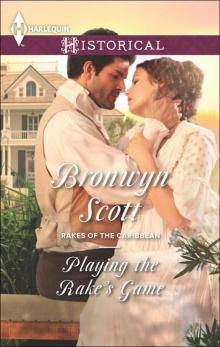 Playing the Rake's Game
Playing the Rake's Game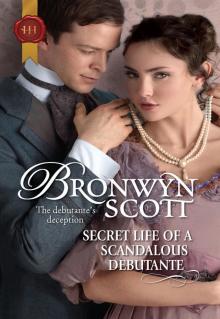 Secret Life of a Scandalous Debutante
Secret Life of a Scandalous Debutante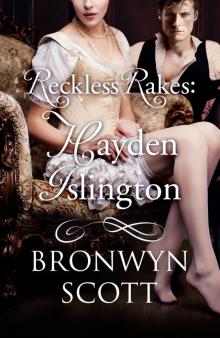 Reckless Rakes - Hayden Islington
Reckless Rakes - Hayden Islington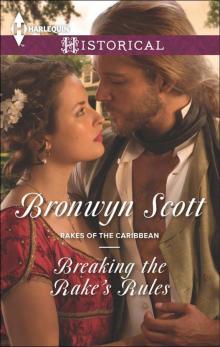 Breaking the Rake's Rules
Breaking the Rake's Rules Arabian Nights with a Rake
Arabian Nights with a Rake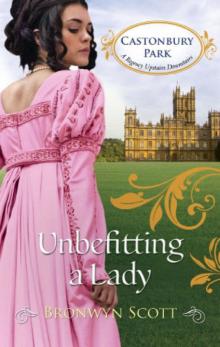 Unbefitting a Lady
Unbefitting a Lady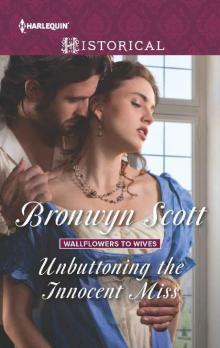 Unbuttoning the Innocent Miss (Wallflowers to Wives)
Unbuttoning the Innocent Miss (Wallflowers to Wives) London's Most Wanted Rake
London's Most Wanted Rake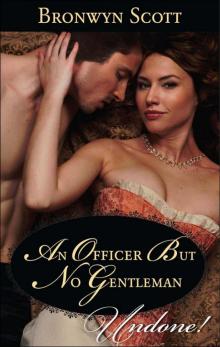 An Officer but No Gentleman
An Officer but No Gentleman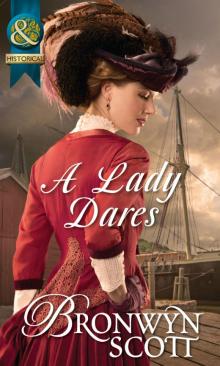 A Lady Dares
A Lady Dares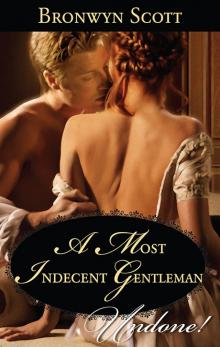 A Most Indecent Gentleman
A Most Indecent Gentleman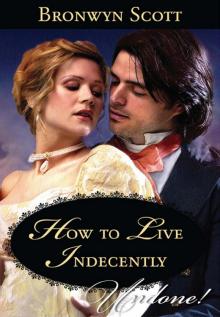 How to Live Indecently
How to Live Indecently Rake Most Likely to Sin
Rake Most Likely to Sin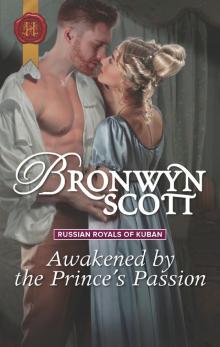 Awakened by the Prince's Passion
Awakened by the Prince's Passion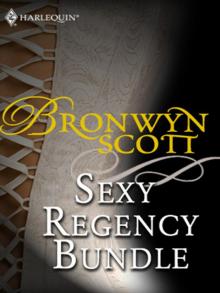 Bronwyn Scott's Sexy Regency Bundle
Bronwyn Scott's Sexy Regency Bundle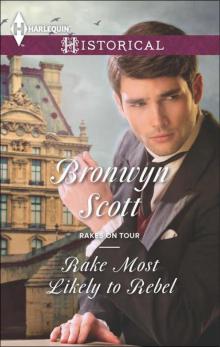 Rake Most Likely to Rebel (Rakes On Tour Book 1)
Rake Most Likely to Rebel (Rakes On Tour Book 1)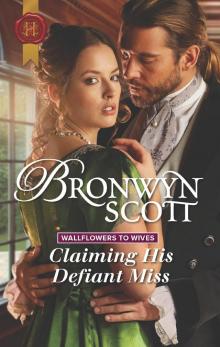 Claiming His Defiant Miss
Claiming His Defiant Miss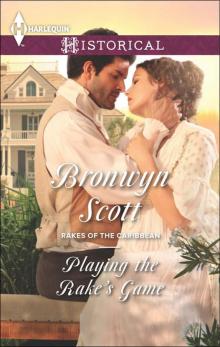 Playing the Rake's Game (Rakes Of The Caribbean Book 1)
Playing the Rake's Game (Rakes Of The Caribbean Book 1)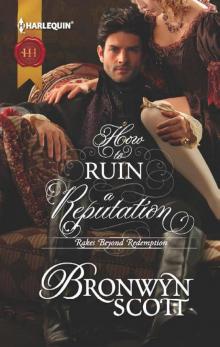 How to Ruin a Reputation (Rakes Beyond Redemption)
How to Ruin a Reputation (Rakes Beyond Redemption)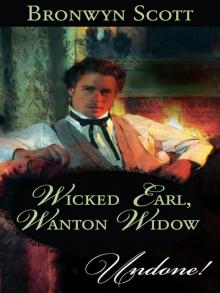 Wicked Earl, Wanton Widow
Wicked Earl, Wanton Widow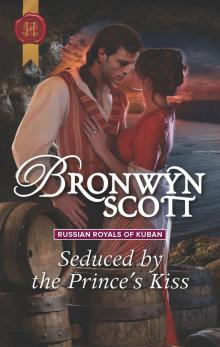 Seduced by the Prince's Kiss
Seduced by the Prince's Kiss